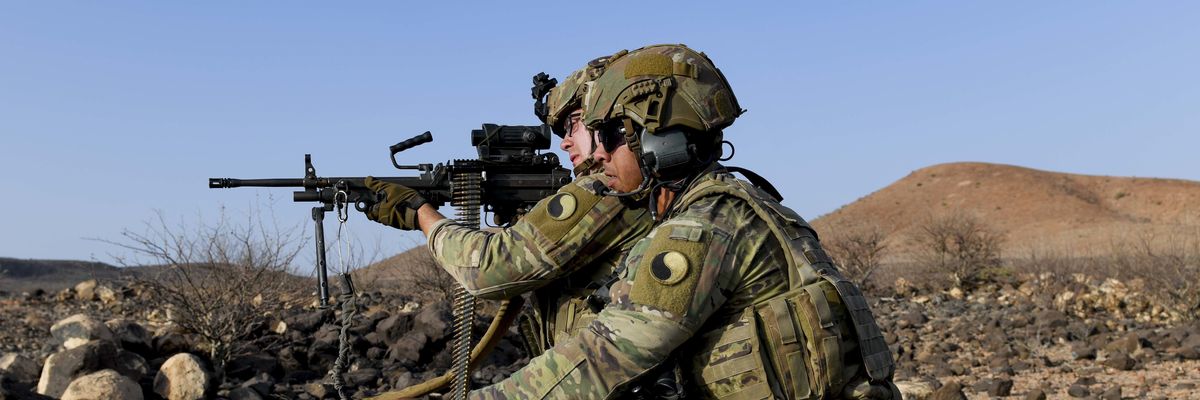More than two decades after 9/11, with a staggering price tag of $8 trillion and the tragic loss of nearly 5 million lives, the horror of the events and its aftermath continue to haunt. While the overt conflicts of the “Global War on Terror” have receded with the U.S.'s departure from Iraq and Afghanistan, many of today's tensions and political unrest can be directly traced to the forces set in motion during the NATO-led global war.
Anti-terror funding continues to flow with few checks and balances, supercharging security forces and the global military industry. West Africa’s ongoing surge in coups highlight the pitfall of Western aid bolstering military institutions at the expense of civil governance.
In the Global North, anti-terrorism experts, having rebranded themselves as holistic security pundits, advocate a more hawkish confrontational approach toward China and Russia. Similarly, in Central Asia, global networks and organizations have concocted a developmental aid industry not always in line with the needs of people on the ground, but the buzzwords of “terrorism” and “security” are music to international donors’ ears.
Meanwhile, in places as varied as Nepal, the ripples of the GWOT can be felt first-hand with the revival of Gurkha training institutes, once used by coalition forces in Iraq and Afghanistan, but now at the disposal of the private security industry. The vast resources and networks mobilized by war do not simply dissipate, but forge new channels, continually reshaping the global landscape.
Beyond its military footprint, the GWOT has spawned a draconian wave of securitized logics and invasive legal frameworks. From the United Kingdom and France to India and Indonesia, nations have invoked their own "9/11 moments" in the wake of domestic terror incidents, unrolling a cascade of repressive laws still in operation. These edicts have authorized prolonged detentions without trial, and wide-ranging privacy infringements demanding compromise on liberty for security.
Leaders in Central Asia and the Middle East, despite their authoritarian credentials, have reinvented themselves as indispensable to a U.S.-led security architecture, leveraging the GWOT's prevailing ethos to quell internal opposition. Even in Latin America, seemingly distant from the 9/11 epicenter, governments have weaponized these legal tools against a broader spectrum of perceived adversaries, including civil society and grassroots organizations. A hyper-securitized world is now our new normal.
Muslims worldwide remain in the crosshairs, even as the echoes of 9/11 grow fainter. In China, age-old frictions between the central authority and its peripheries have been repackaged, using the GWOT narrative to amplify oppression against the Uyghur minority. Muslims in the diaspora, especially in the West, find themselves walking a tightrope — compelled to constantly justify their “anti-Taliban” convictions and reassert their fidelity to liberal ideals.
Across media platforms, hackneyed stereotypes of Muslims persist. Even well-intentioned gestures, like the CBS sitcom about an Afghan interpreter for the U.S. military and Marvel's recent embrace of Muslim characters, can end up ensnared in the familiar and limiting motifs of the GWOT. But many Muslim communities refuse to be silent. In Northwest Pakistan, for example, opposition to drone bombing sparked a grassroots political movement that has united people against both imperialism and extremism.
Young adults today may view 9/11 as distant history. The COVID pandemic, climate disasters, and the war in Ukraine dominate their global purview, not the drone-strikes, surveillance apparatus, and aftershocks of the Global War on Terror. But just as the repercussions of World War II dictated the contours of global dynamics for decades, the ongoing legacies of the GWOT continue to sculpt our world in both overt and insidious ways. They demand remembering, archiving, and vigilant attention.















